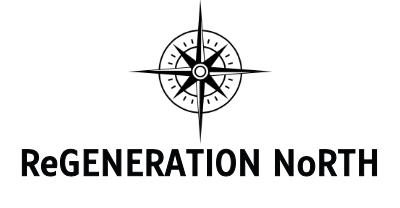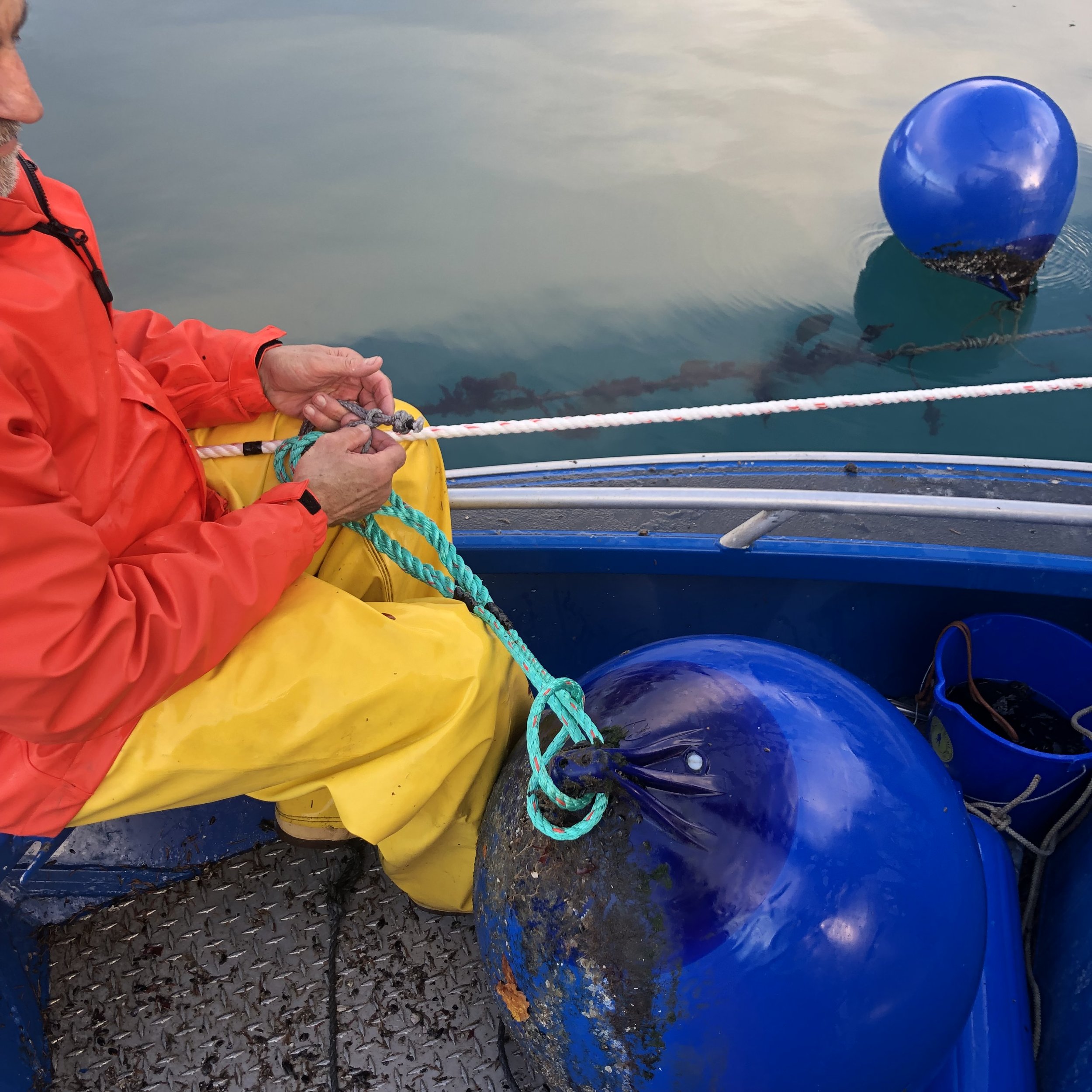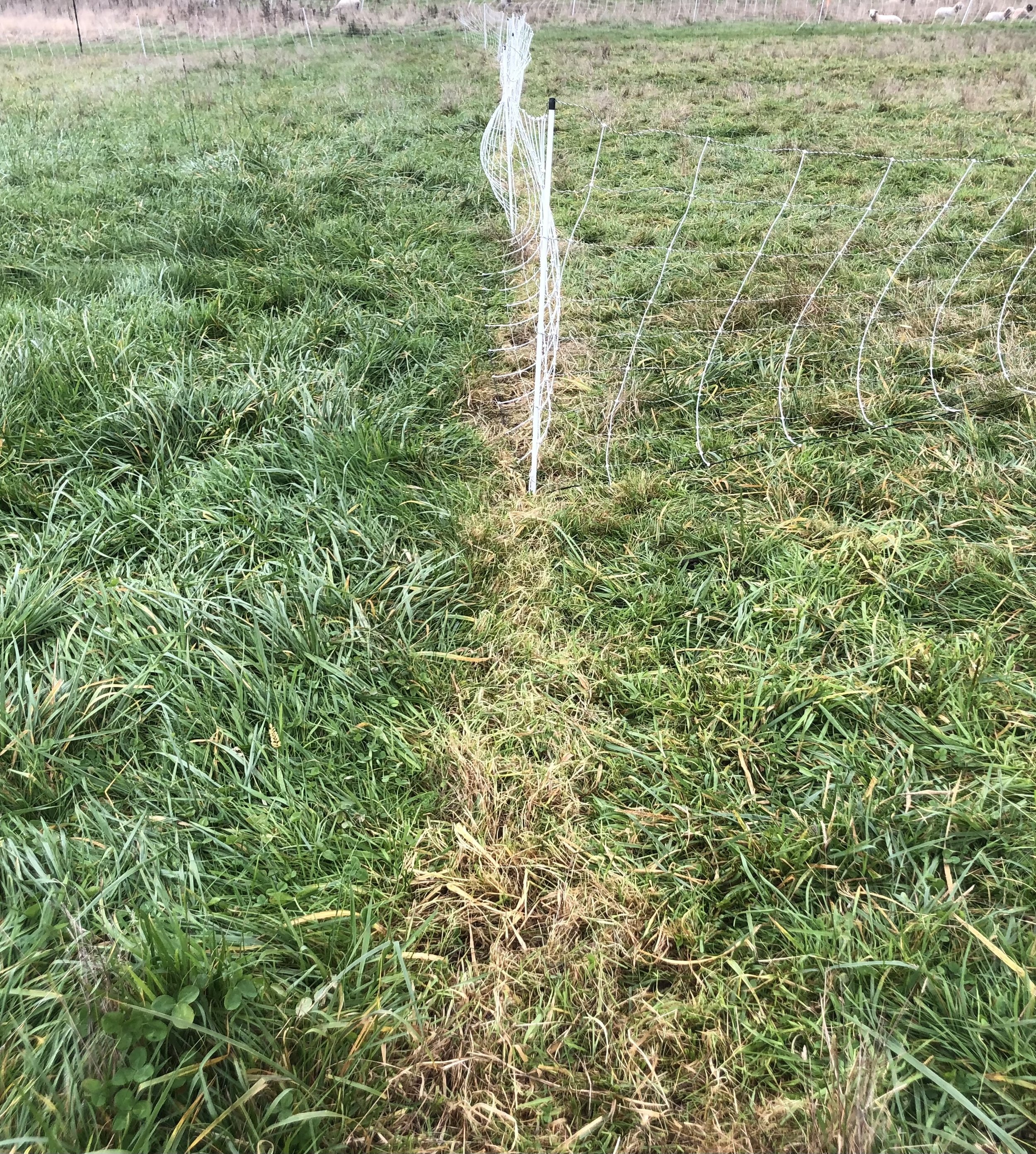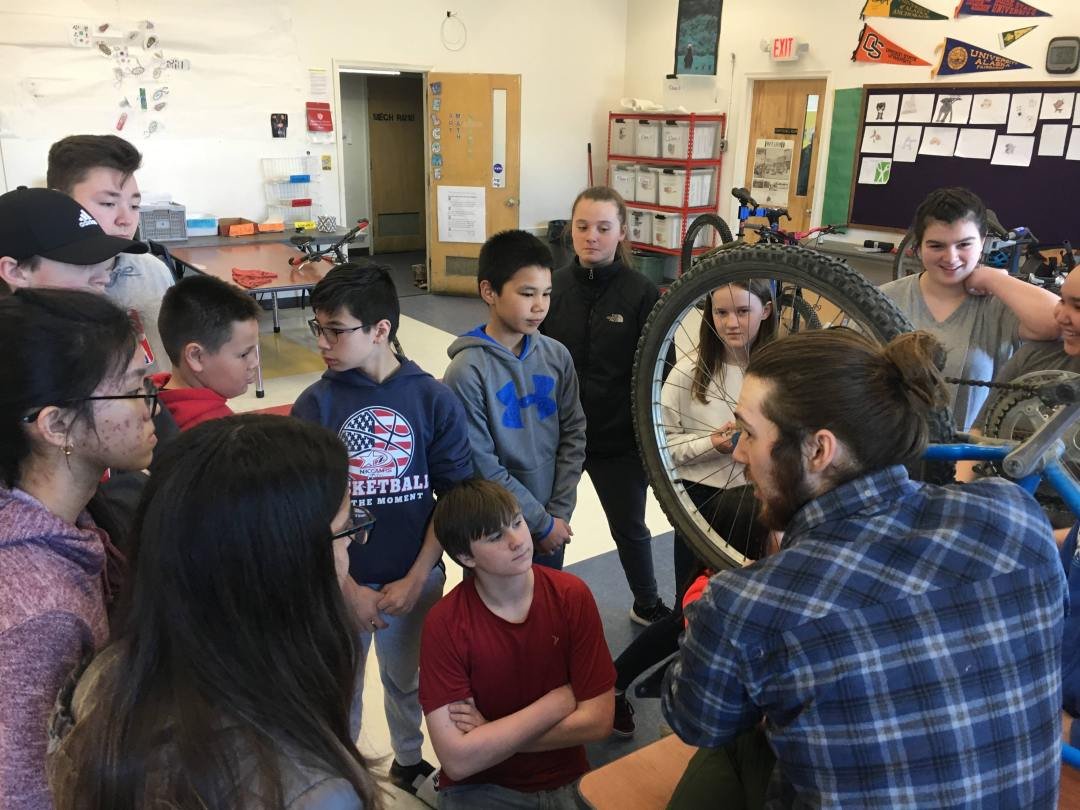Kelp Mariculture
Kachemak Kelp Innovation Hub – is a proof-of-concept applied research initiative designed to support development of a sustainable and inclusive seaweed mariculture industry and to alleviate some of the barriers to community-scale regenerative ocean farming in coastal Alaska. At the Hub we’re supporting best ecological practices in ocean farming, developing and scaling efficient methods of processing farm-grown seaweed, and developing value-added products. We’re also growing and expanding diverse markets - from local food businesses to innovative agricultural, textile, nutraceutical applications. This work is in partnership with Saltwater, Inc., and in collaboration with Kachemak Bay kelp farmers, Alutiiq Pride Marine Institute, the Indigenous communities of Port Graham and Nanwalek, and others, and is supported by a NOAA Saltonstall-Kennedy grant, two Joint Innovation Project grants from the Alaska Fisheries Development Foundation, and a Feasibility Study grant from the Alaska Mariculture Cluster.
National Review and Alignment of Kelp Mariculture Organic Certification Protocols and Guidelines - Under the the USDA Transition to Organic Partnership Program (TOPP) and in collaboration with GreenWave, we’re convening and facilitating a collaborative cross-sector informed process to develop uniform protocols and guidelines for organic certification of seaweed farms and crops under the USDA National Organic Program. This initiative is addressing important issues in seaweed nursery culture, exploring synergies with state level water quality policy, and working to ensure consistent implementation of organic certification within the seaweed mariculture sector.
Organic Certification of farmed Kelp; Alaska Needs Assessment - Under the the USDA Transition to Organic Partnership Program (TOPP), we are determining the current and anticipated market demand for Alaska-grown organic certified farmed kelp, identifying impediments to organic certification, and developing specific support mechanisms and infrastructure recommendations to support and advance organic kelp production. The project is supported through TOPP which falls under the USDA Organic Transition Initiative and is administered by the USDA Agricultural Marketing Service (AMS) National Organic Program (NOP).
Regenerative Agriculture & Agroforestry
Regenerative Farm Plan – As part of a healthy soils and regenerative practices assessment for a Pacific Northwest sheep ranch, we developed a Regenerative Farm Plan that provides recommendations for climate-positive pasture management while providing exceptional animal care and producing quality meats. The plan establishes a framework for testing methods, measuring carbon dynamics and change over time, and effectively communicating the benefits of soil health to customers and the community.
Soil Health and Carbon Primer - To support our client’s implementation of the Regenerative Farm Plan (above), we compiled a summary of current knowledge and research findings on soil health and soil carbon, and tools and approaches for managing agricultural lands to improve and maintain healthy soils. The Primer includes soil health and soil carbon metrics, indicators and tests, and planning Frameworks and monitoring tools.
Agroforestry - Our team supported the organizational growth of Interlace Commons and their mission to promote the adoption of agroforestry land-use practices that address climate change and land degradation and move toward resilient, biodiverse landscapes that enhance livelihoods. We’re also exploring applications of this important work in the North.
Community & Organizational Resilience
Sustainability at Anchorage’s K Street Market - Fire Island Rustic Bakeshop – To help Fire Island Rustic Bakeshop achieve their goals of strengthening local food businesses and revitalizing an urban neighborhood, we developed and implemented strategies for funding, re-purposing and incorporating renewable energy in the significant rehabilitation and renovation of a 1960s building in the Anchorage Downtown Business Improvement District. To address their goal to be a sustainable business leader we worked with the Fire Island team and the Municipality of Anchorage to develop a pilot project to collect and compost food waste from the K Street Market complex and other local businesses.
Alaska Food Security & Independence Task Force 2023 Report - We’re proud to be a contributing author of this report addressing many facets of Alaska’s food system, including wild food harvest, production, processing, distribution and aggregation, access, and waste and recovery.
Susitna Bicycle Institute – In support of SBI’s community-focused mission to make cycling and bike maintenance more accessible and to promote the health, well being and skill-set of people across rural and urban Alaska, we provided fundraising coaching and strategic advice on non-profit leadership and management.
Alaska Carbon Reduction & Renewable Energy Fund Assessment – In consultation with the Alaska Center for Energy and Power at the University of Alaska, we conducted a feasibility analysis for a private sector-financed, statewide renewable energy fund. We examined how existing efforts might be synergistically dovetailed and amplified to create wider impact and economies of scale, and if sufficient interest and capital exists to support a statewide program.







